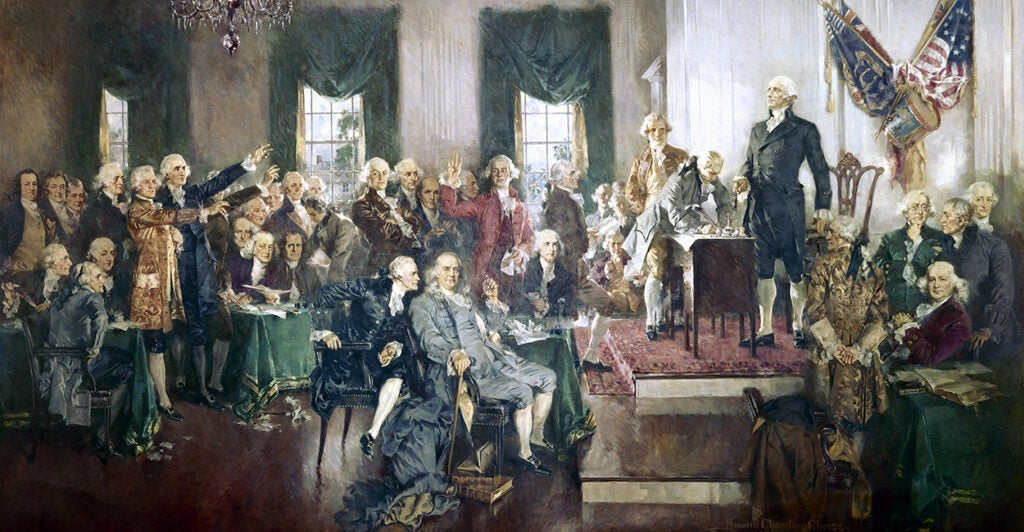The American Revolution served as a test to see if the 13 colonies could come together to “identity as a people, as a nation,” Richard Reinsch says. The question after the war was “had they actually become in effect one people and no longer 13 separate colonies or even 13 separate states?”
After the war, the Articles of Confederation served as America’s frame of government, but it quickly became apparent that the articles could not successfully create a strong united country, according to Reinsch.
“The problem with the Articles of Confederation… is they don’t create in effect any central government that can actually regulate, that can tax, that can conduct an authoritative foreign policy, [or] that can regulate commerce,” he said. The founding fathers acknowledged that a central government was needed to bring the diverse states together and create a sustainable union.
By the time the founding fathers “go to the Philadelphia Convention in 1787, there’s a consensus throughout the 13 states that there’s a problem, and that the weak and ineffectual government has to be remedied in some capacity,” Reinsch says.
Reinsch joins “The Daily Signal Podcast” for the third part of the show’s Independence Day series to discuss the crafting of the Constitution and how the document became the foundation of American freedom.
Listen to the podcast below:
Have an opinion about this article? To sound off, please email letters@DailySignal.com and we’ll consider publishing your edited remarks in our regular “We Hear You” feature. Remember to include the url or headline of the article plus your name and town and/or state.
